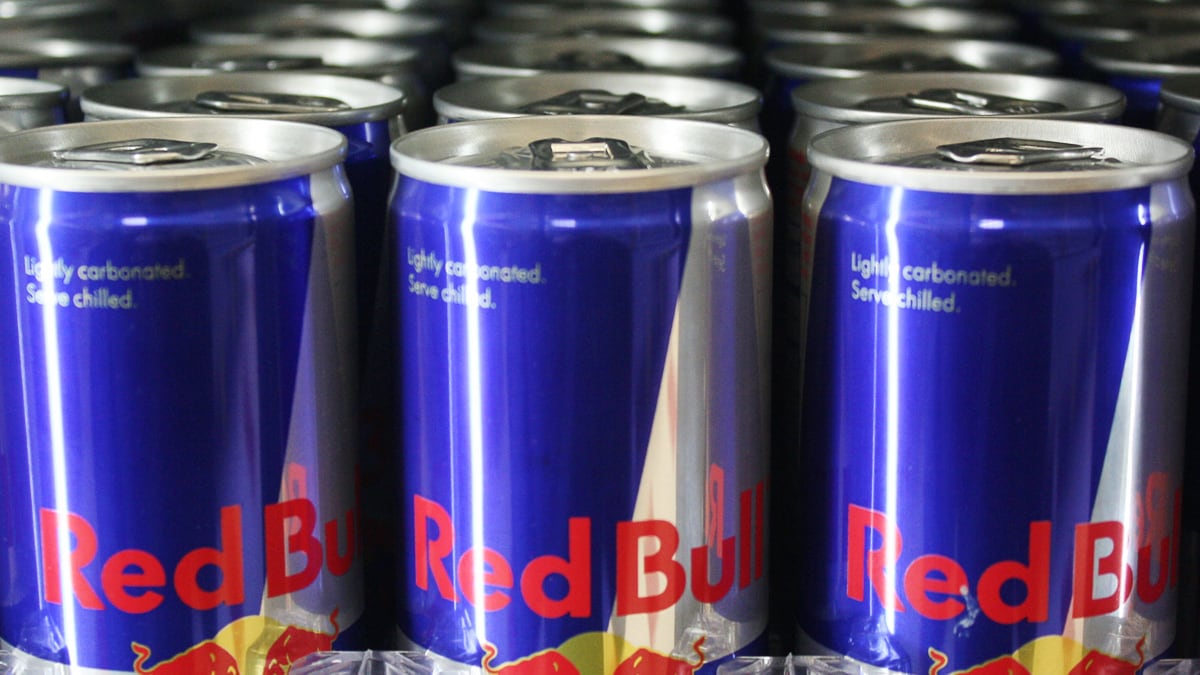Google “Demi Moore Red Bull addiction.” You’ll score nearly 2 million hits. Most call Moore a Red Bull addict. She’s had this crimson bovine on her back for 10 years, they say, and that’s why she checked into rehab last week.
Moore allegedly used Red Bull as a meal replacement. Ask any anorexic: Sweetness satisfies. A can of Red Bull contains 27 grams—that’s seven teaspoonsful—of sugar. Caffeine’s appetite-suppressant powers are legendary, and the beverage is full of the stuff. And Red Bull’s ability to elevate energy, well, just take a sip.
According to at least one study, merely believing that caffeine speeds us up can speed us up. Other academic findings link moderate caffeine consumption with improved concentration, decision-making, problem-solving and short-term memory, not to mention endurance. A University of Saskatchewan–affiliated study found that Red Bull “significantly increased upper-body muscle endurance.” A University of the West of England–affiliated study found that Red Bull “significantly improved” both aerobic and anaerobic performance on stationary bicycles, and was linked to “significant improvements in mental performance” involving choice-reaction time, concentration, and memory. Another study, from the University of Utrecht, found that Red Bull “significantly improves driving performance and reduces driver sleepiness during prolonged highway driving.”

Still other studies draw the line from caffeinated-energy-drink consumption to an increased risk of seizure and stroke.
Good for the mind, bad for the heart. But is Red Bull addictive?
“Not really,” says Brad Anderson, chief of the Department of Addiction Medicine at Kaiser Permanente Northwest. “What does Red Bull contain that could be addictive? Its main points are sugar and caffeine.”
The Diagnostic and Statistical Manual IV, which defines most mental-disorder diagnoses, avoids the term “addiction,” preferring “dependence” and “abuse” for dead giveaways such as “a need for markedly increased amounts of the substance to achieve intoxication” and “recurrent substance use resulting in a failure to fulfill major role obligations at work, school, or home.” The DSM-IV defines “caffeinism” as a state of acute or chronic caffeine intoxication, potentially causing insomnia, anxiety, gastrointestinal bleeding, and, in rare cases, coma and death. Caffeinism, Anderson says, is the only slot into which you could slip Red Bull chuggers. Even then, he’s not so convinced.
“If you’re predisposed to a bad heart rhythm, caffeine can push you into that area. But caffeinism is a chemical dependency, not a true addiction. Some people get headaches if they don’t get their caffeine, but that doesn’t come close to the life-altering dysfunction caused by cocaine, alcohol, or heroin.”
A can of Red Bull contains 80 milligrams of caffeine, about the same as are in a regular cup of brewed coffee. A can of Monster, by comparison, contains 160mg of caffeine. A can of Rockstar Citrus Punched contains 240mg. Then there are all those fancy additives.
Energy drinks’ non-caffeine components “are just totally irrelevant,” says retired psychiatrist Stephen Barrett, who helms Quackwatch.org. “They’re just added to make the drinks look like there’s more stuff in them.” Those additives include niacin and inositol, a vitamin-like chemical compound used to fight pain, schizophrenia, baldness, and cancer. But as Barrett points out, these components appear in such tiny amounts that chugging tubfuls of the stuff might yield no measurable effects.
Taurine, an amino acid contained in Red Bull and other energy drinks, “is needed for neurological development,” Anderson explains. “You give preemies supplemental taurine because they can’t produce it yet themselves.” It is a building block of protein and found in large amounts in the brain, retina, heart, and blood platelets.
Studies suggest that in adults, taurine—a.k.a. 2-aminoethanesulfonic acid, which 19th-century researchers isolated from ox bile (hence its name), but which is now chemically synthesized—raises blood pressure and attenuates exercise-related DNA damage in endurance athletes. It also relieves swelling in nonagenarians, offers antioxidant benefits, and protects against both heart disease and cirrhosis of the liver.
According to one such study, taurine levels in energy drinks “are far below the amounts expected to deliver either therapeutic benefits or adverse events.” Nonetheless, Red Bull was banned in France for 12 years based on concerns about taurine’s potential dangers. Under new EU rules, the ban was reversed in 2008.
“There is nothing conclusive saying that you can get taurine in toxic levels,” Anderson asserts. “As happens with vitamin C, at some point the body becomes saturated with it and excretes the rest. Does taurine have any benefit in terms of improving performance, which is what the Red Bull people would want us to think? I doubt it.” Read the website, Dr. Anderson: “Thanks to a unique combination of high-quality ingredients Red Bull Energy Drink vitalizes body and mind,” says RedBull.com.
Texas addiction therapist Dylan Mack disagrees about the effects of energy-enhancing beverages like Red Bull. He refuses to let people under their influence attend his group sessions. “If I have any indication that they have recently used Jolt or Monster or Red Bull, they can’t sit in my groups,” says Mack, who observes a fondness for energy drinks among his clients.
“The ones who see me about marijuana abuse would never touch that stuff. But to those who have problems with crack cocaine or methamphetamines, those who love stimulants, energy drinks seem like great legal substitutes. They deliver that same edginess, grittiness, and intensity, that wonderful sense of euphoria, as all those dopamines are released,” Mack says, thanks mainly to the caffeine jolt.
He’s seen the effects of Red Bull firsthand. His addicted patients “drink it and become hyper. They’re looking all over the place. Their legs are shaking, they’re all revved up and can’t absorb information. One can creates an instant case of attention-deficit disorder,” Mack says.
So Red Bull looks like a drug and acts like a drug. But the FDA says Red Bull is food, although its effect on bodily function—certainly not its flavor—is its raison d’etre. Certainly one can be addicted to a food, right?
“If you’re Demi Moore and you’re drinking Red Bull, only Red Bull and lots of Red Bull, is it an addiction or is it just stupid?” Kaiser Permanente’s Dr. Anderson asks. “Trying to be incredibly diagnostically accurate, you can say: Does Demi Moore have an addiction? No. Does she have a bad habit? Yes. Just because it’s not an addiction doesn’t mean she shouldn’t stop doing it.
“Lots of fringe things are called addictions that are just bad habits. I’ve seen people ‘addicted’ to nasal spray. If your life is unraveling as a result of this substance, you need help. If you’re Demi Moore, you can find help in a hoity-toity recovery center.” Not so for the rest of us mere mortals. “The hospitals are too busy treating alcoholics and opiate addicts.”
Real addicts, that is.






